Saffron is the most expensive spice in the world — with 1 pound (450 grams) costing between 500 and 5,000 U.S. dollars.
The reason for its hefty price is its labor-intensive harvesting method, making the production costly.
Saffron is harvested by hand from the Crocus sativus flower, commonly known as the “saffron crocus.” The term “saffron” applies to the flower’s thread-like structures, or stigma.
Here are 8 impressive health benefits of saffron.
1. A Powerful Antioxidant
Saffron contains an impressive variety of plant compounds that act as antioxidants — molecules that protect your cells against free radicals and oxidative stress.
Notable saffron antioxidants include crocin, crocetin, safranal, and kaempferol (2).
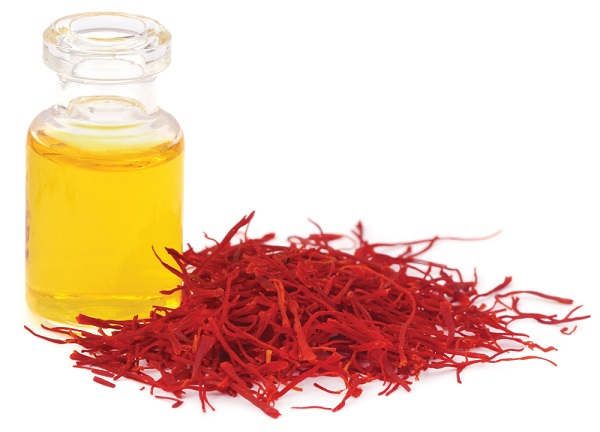
Crocin and crocetin are carotenoid pigments and responsible for saffron’s red color. Both compounds may have antidepressant properties, protect brain cells against progressive damage, improve inflammation, reduce appetite, and aid weight loss (2, 3).
Safranal gives saffron its distinct taste and aroma. Research shows that it may help improve your mood, memory, and learning ability, as well as protect your brain cells against oxidative stress (4).
Lastly, kaempferol is found in saffron flower petals. This compound has been linked to health benefits, such as reduced inflammation, anticancer properties, and antidepressant activity (2, 5).
SUMMARY:Saffron is rich in plant compounds that act as antioxidants, such as crocin, crocetin, safranal, and kaempferol. Antioxidants help protect your cells against oxidative stress.
2. May Improve Mood and Treat Depressive Symptoms
Saffron is nicknamed the “sunshine spice.”
That’s not just due to its distinct color, but also because it may help brighten your mood.
In a review of five studies, saffron supplements were significantly more effective than placebos at treating symptoms of mild-to-moderate depression (6).
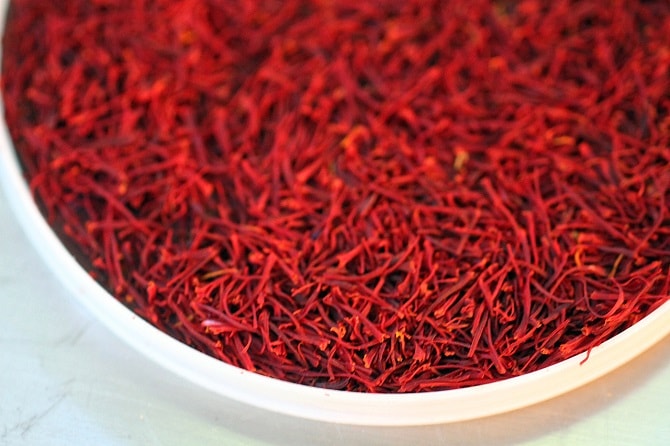
Other studies found that taking 30 mg of saffron daily was just as effective as Fluoxetine, Imipramine, and Citalopram — conventional treatments for depression. Additionally, fewer people experienced side effects from saffron compared to other treatments (7, 8, 9).
What’s more, both the saffron petals and thread-like stigma appear to be effective against mild-to-moderate depression (1, 10).
While these findings are promising, longer human studies with more participants are needed before saffron can be recommended as a treatment for depression.
SUMMARY:Saffron may help treat symptoms of mild-to-moderate depression, but more studies are needed before definite recommendations can be made.
3. May Have Cancer-Fighting Properties
Saffron is high in antioxidants, which help neutralize harmful free radicals. Free radical damage has been linked to chronic diseases, such as cancer (11).
In test-tube studies, saffron and its compounds have been shown to selectively kill colon cancer cells or suppress their growth, while leaving normal cells unharmed (12).
This effect also applies to skin, bone marrow, prostate, lung, breast, cervix, and several other cancer cells (13).
What’s more, test-tube studies have found that crocin — the main antioxidant in saffron — may make cancer cells more sensitive to chemotherapy drugs (14).
While these findings from test-tube studies are promising, the anticancer effects of saffron are poorly studied in humans, and more research is needed.
SUMMARY:Saffron is high in antioxidants, which may help kill cancer cells while leaving normal cells unharmed. However, more human research is needed.
4. May Reduce PMS Symptoms
Premenstrual syndrome (PMS) is a term that describes physical, emotional, and psychological symptoms occurring before the start of a menstrual period.
Studies show that saffron may help treat PMS symptoms.
In women 20–45 years of age, taking 30 mg of saffron daily was more effective than a placebo at treating PMS symptoms, such as irritability, headaches, cravings, and pain (15).

Another study found that simply smelling saffron for 20 minutes helped reduce PMS symptoms like anxiety and lowered levels of the stress hormone cortisol (16).
SUMMARY:Both eating and smelling saffron appears to help treat PMS symptoms, such as irritability, headaches, cravings, pain, and anxiety.
5. May Act as an Aphrodisiac
Aphrodisiacs are foods or supplements that help boost your libido.
Studies have shown that saffron may have aphrodisiac properties — especially in people taking antidepressants.
For instance, taking 30 mg of saffron daily over four weeks significantly improved erectile function over a placebo in men with antidepressant-related erectile dysfunction (17).
Additionally, an analysis of six studies showed that taking saffron significantly improved erectile function, libido, and overall satisfaction but not semen characteristics (18).
In women with low sexual desire due to taking antidepressants, 30 mg of saffron daily over four weeks reduced sex-related pain and increased sexual desire and lubrication, compared to a placebo (19).
SUMMARY:Saffron may have aphrodisiac properties for both men and women and may especially help those taking antidepressants.
6. May Reduce Appetite and Aid Weight Loss
Snacking is a common habit that may put you at risk of gaining unwanted weight.
According to research, saffron may help prevent snacking by curbing your appetite.
In one eight-week study, women taking saffron supplements felt significantly more full, snacked less frequently, and lost significantly more weight than women in the placebo group (20).
In another eight-week study, taking a saffron extract supplement helped significantly reduce appetite, body mass index (BMI), waist circumference, and total fat mass (3).
However, scientists are unsure how saffron curbs appetite and aids weight loss. One theory is that saffron elevates your mood, which in turn reduces your desire to snack (20).
SUMMARY:Saffron has been shown to reduce snacking and curb your appetite. In turn, these behaviors may help you lose weight.
7. Other Potential Health Benefits
Saffron has been linked to other health benefits that have not yet been extensively studied:
- May reduce heart disease risk factors: Animal and test-tube studies indicate that saffron’s antioxidant properties may lower blood cholesterol and prevent blood vessels and arteries from clogging (21, 22, 23).
- May lower blood sugar levels: Saffron may lower blood sugar levels and raise insulin sensitivity — as seen in test-tube studies and mice with diabetes (24, 25).
- May improve eyesight in adults with age-related macular degeneration (AMD): Saffron appears to improve eyesight in adults with AMD and protect against free radical damage, which is linked to AMD (26, 27, 28).
- May improve memory in adults with Alzheimer’s disease: Saffron’s antioxidant properties may improve cognition in adults with Alzheimer’s disease (29).
SUMMARY:Saffron has been linked to several other potential health benefits, such as improved heart disease risk, blood sugar levels, eyesight, and memory. However, more studies are needed to draw stronger conclusions.
8. Easy to Add to Your Diet
In small doses, saffron has a subtle taste and aroma and pairs well with savory dishes, such as paella, risottos, and other rice dishes.
The best way to draw out saffron’s unique flavor is to soak the threads in hot — but not boiling — water. Add the threads and the liquid to your recipe to achieve a deeper, richer flavor.
Saffron is readily avail

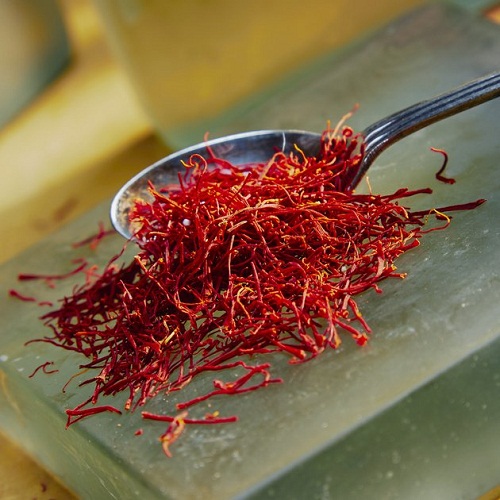

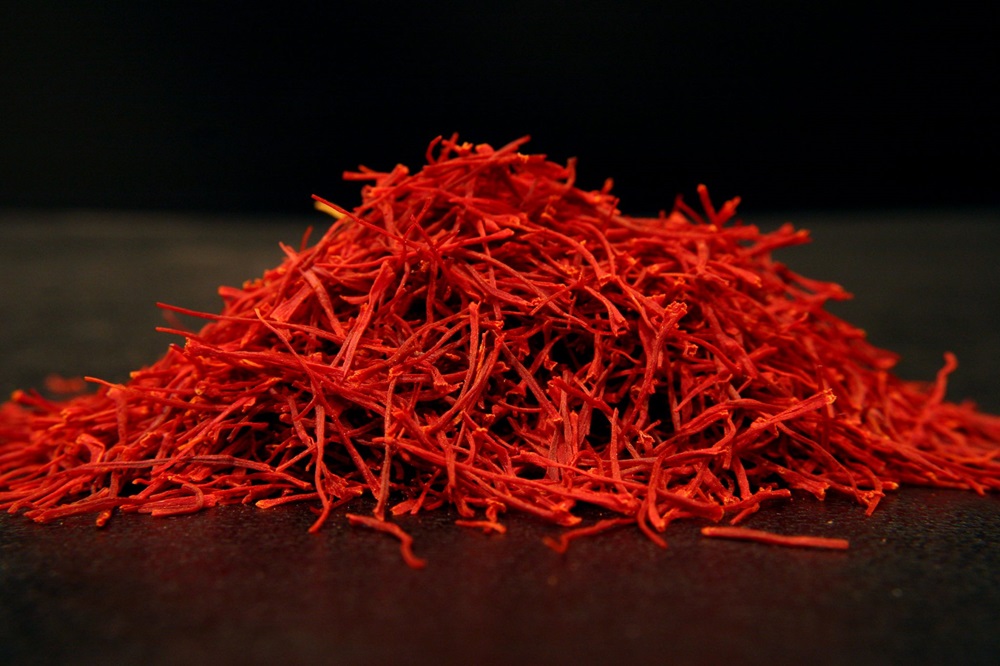

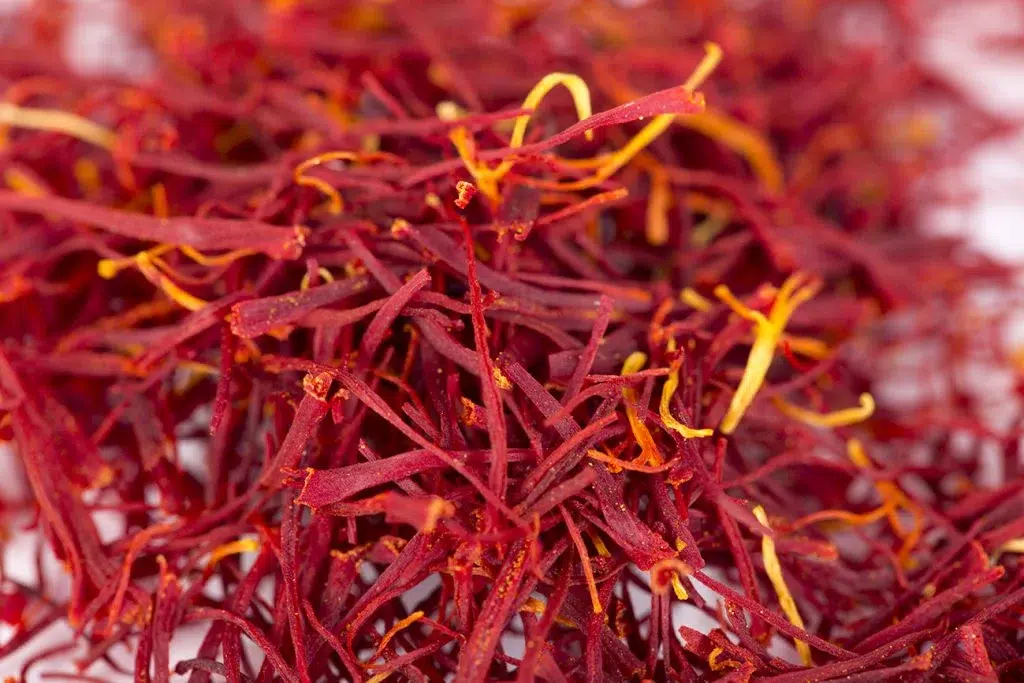
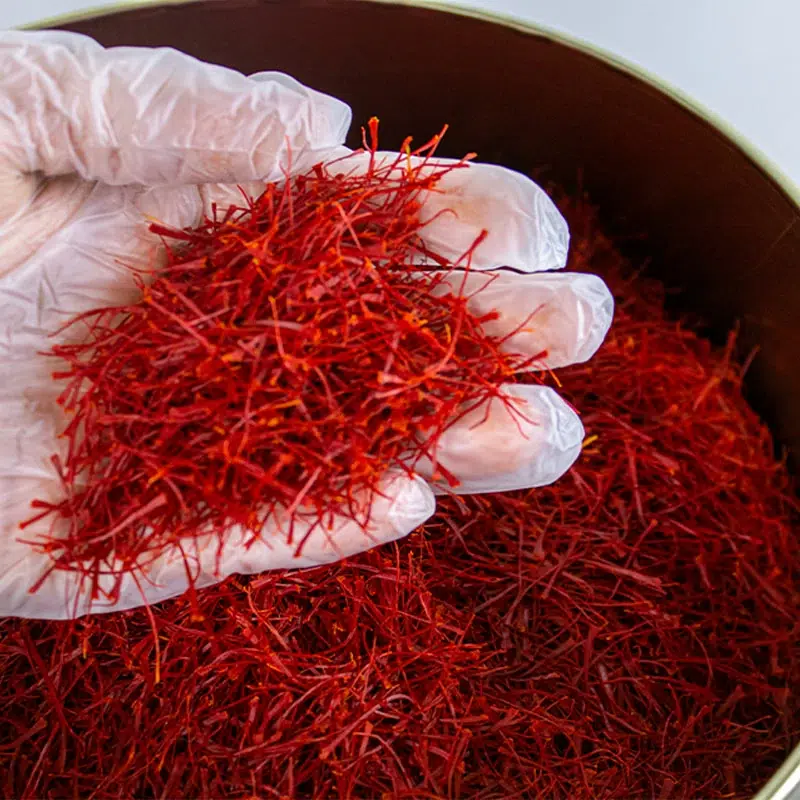
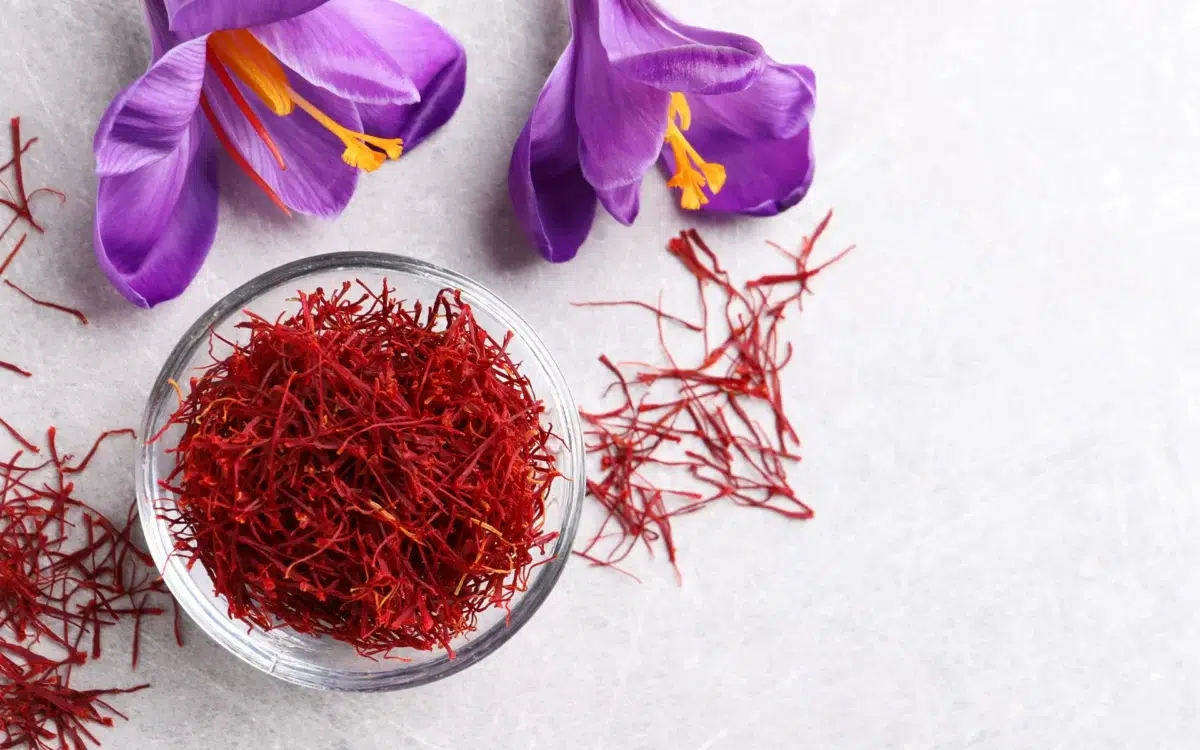
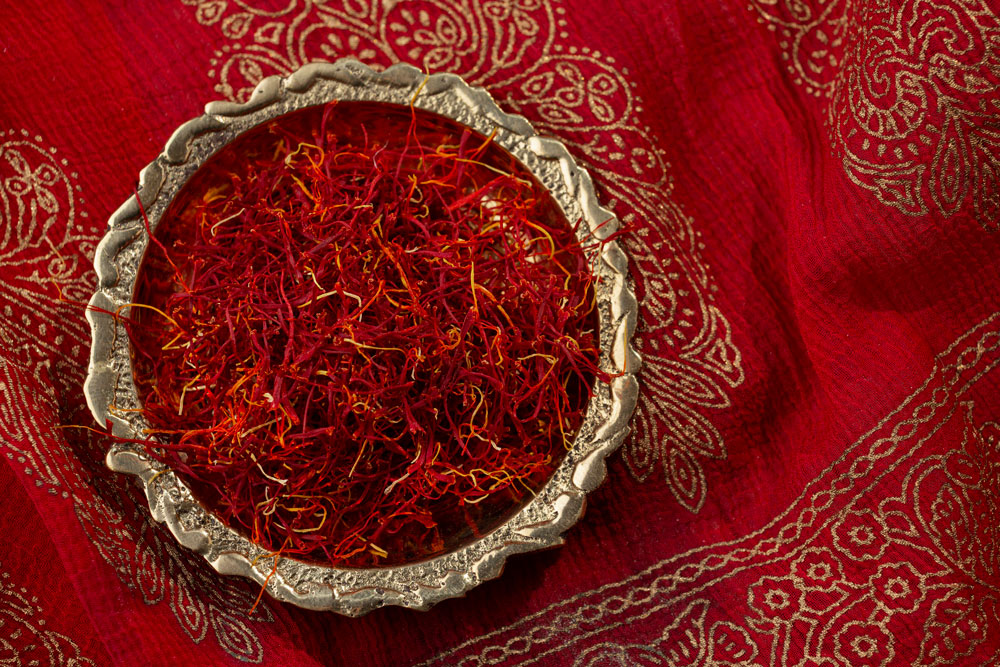

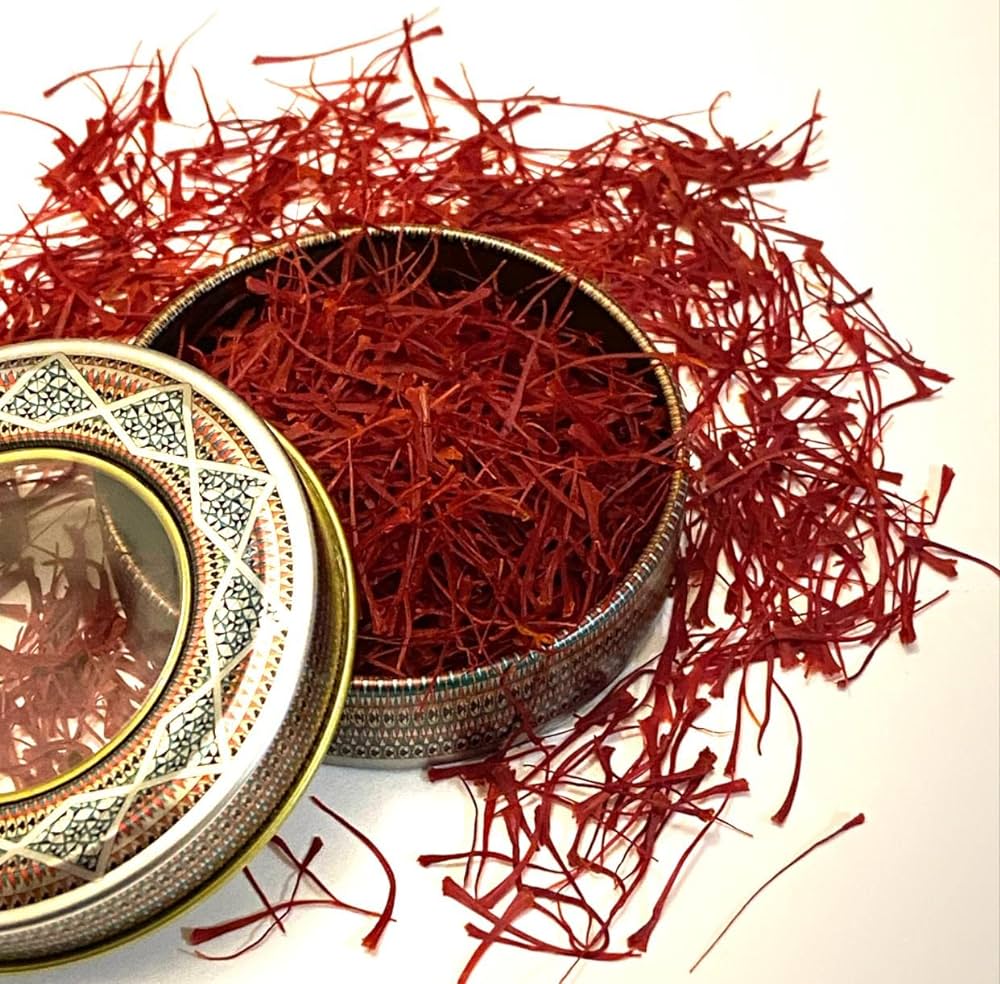
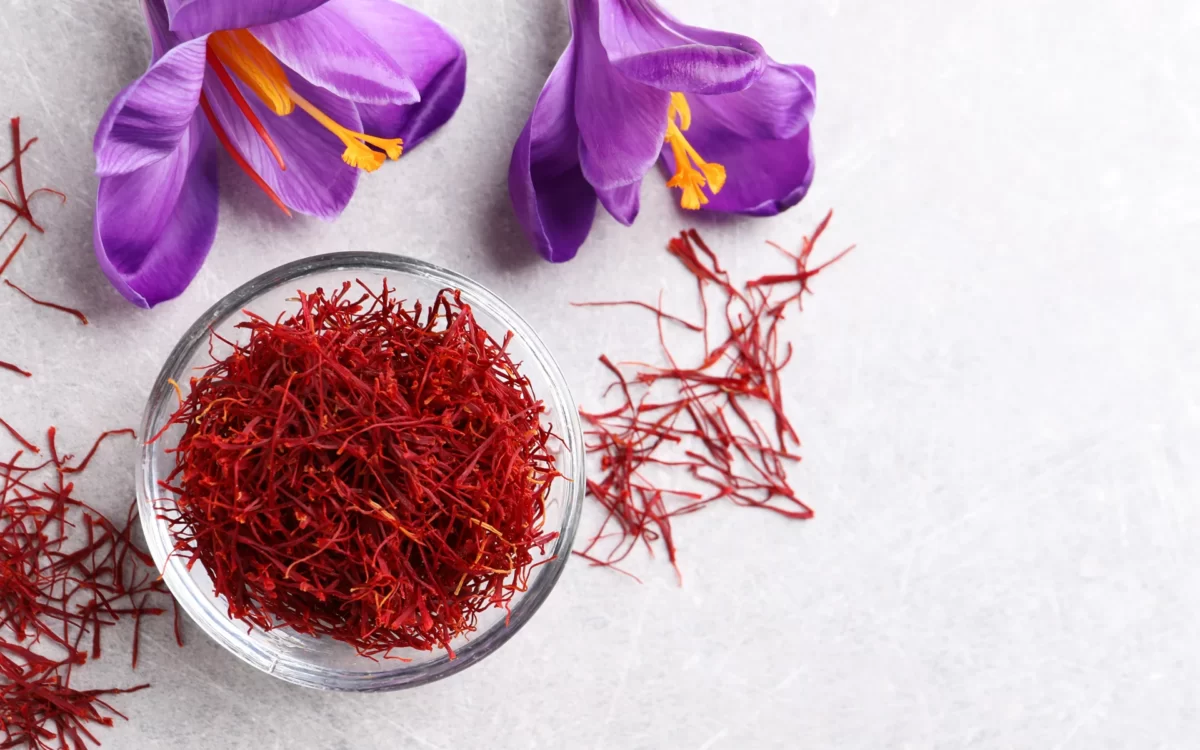
Good luck
Wishing you health and health
thanks for this useful content.
saffron is a good food for healthy man. and useful for body and happiness